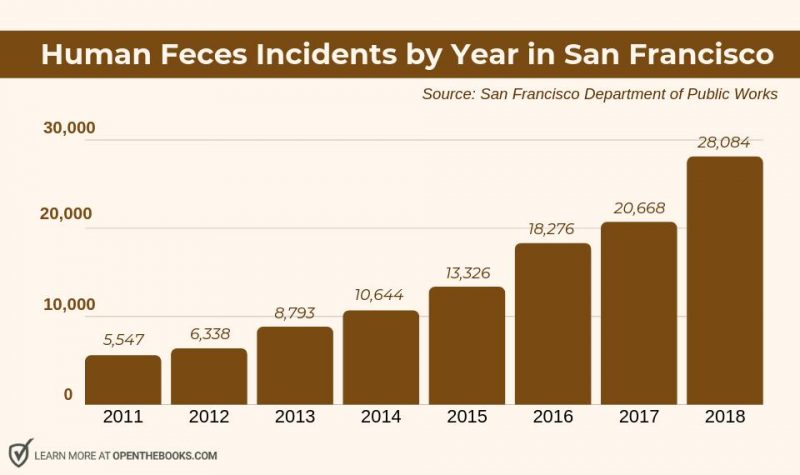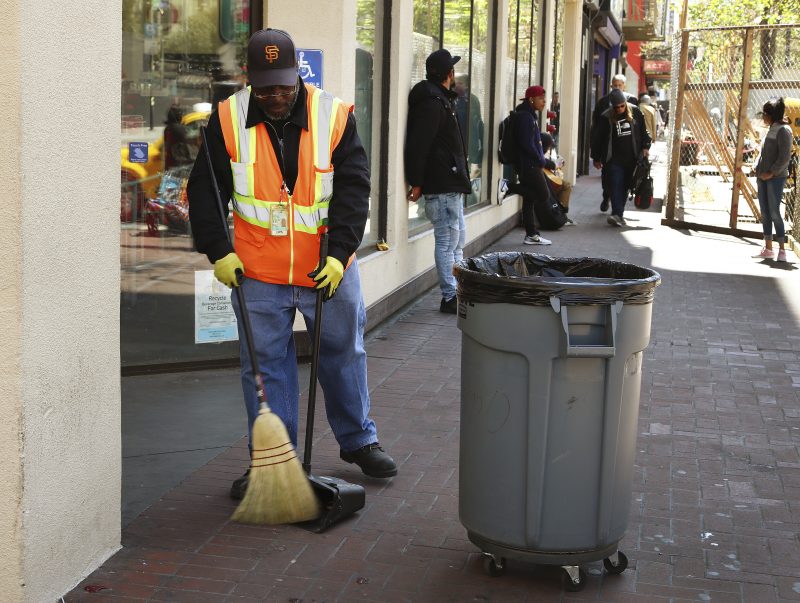- San Francisco is one of the wealthiest cities in America, with an annual household income that’s nearly double the national median household income.
- As its wealth has increased, so has economic inequality – a chart of reported incidents of human feces illustrates that division.
- Since 2011, San Francisco has gone from about 5,000 reported instances to more than 25,000 in 2018.
- Visit BusinessInsider.com for more stories.
One of America’s wealthiest cities has a huge problem with public poop.
Between 2011 and 2018, San Francisco experienced a massive increase in reported incidents of human feces found on public streets.
In 2011, just over 5,500 reports were logged by the San Francisco Department of Public Works; in 2018, the number increased to more than 28,000.
The government watchdog Open the Books documented the sharp increase over time in a stunning chart, first spotted by the BuzzFeed editor John Paczkowski.

Notably, this is a chart of only documented reports - the actual amount of feces on San Francisco's streets is likely even higher than these statistics suggest.
"I will say there is more feces on the sidewalks than I've ever seen growing up here," San Francisco mayor London Breed told NBC in a 2018 interview. "That is a huge problem, and we are not just talking about from dogs - we're talking about from humans."
San Francisco has struggled with a feces problem for years. The city even employs a "Poop Patrol" that aims to keep the streets clean, which focuses on the Tenderloin neighborhood.

But the problem is bigger than just keeping the streets clean - it's a demonstration of the city's struggle to accommodate its homeless population amidst skyrocketing rent prices and a decreasing supply of affordable housing.
A 2017 survey of San Francisco's homeless population counted just shy of 7,500 people living on the street. That population faces limited public resources, and public bathrooms are no exception.
Whether the Poop Patrol is able to reverse the trend on San Francisco's streets remains to be seen, but it's evident that the crew is a bandage on a much bigger problem than dirty streets.

